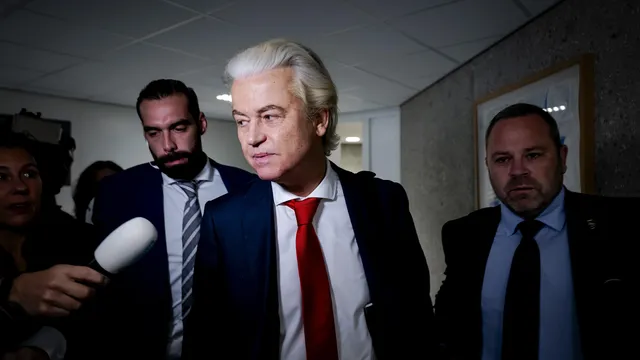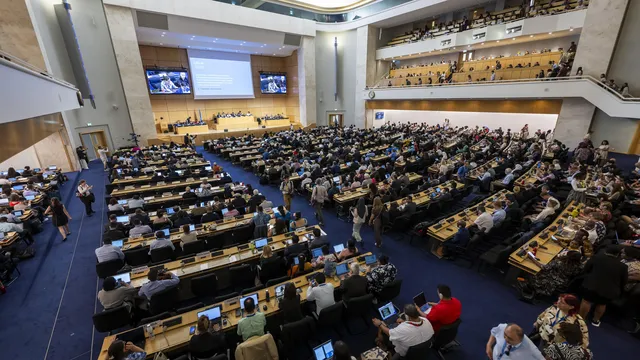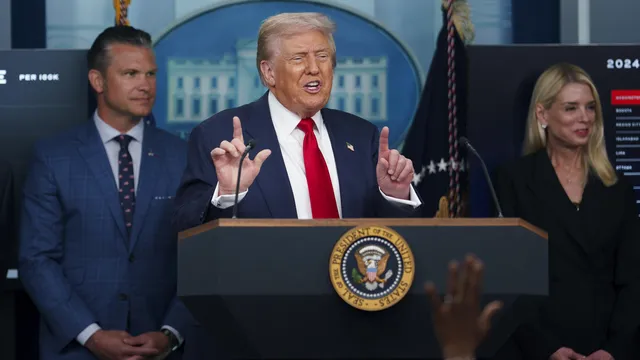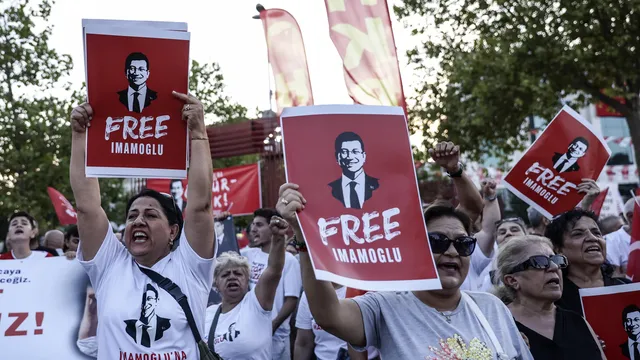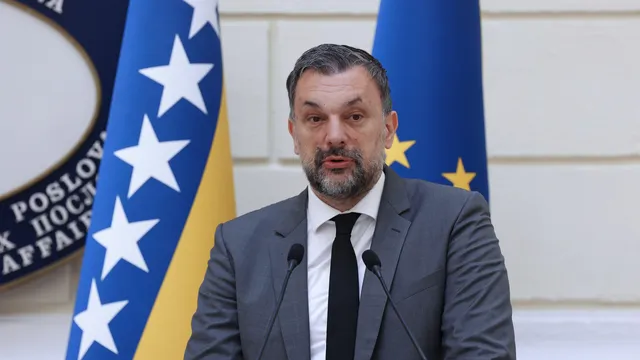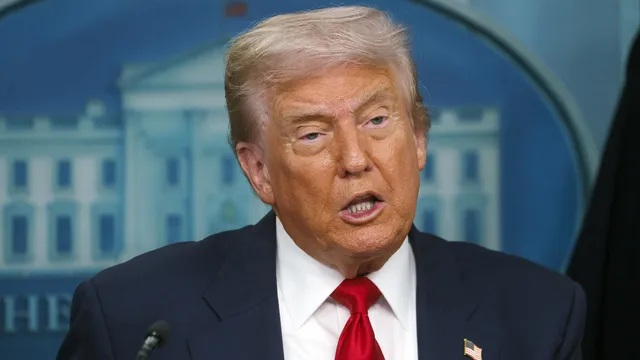The Netherlands is on the verge of new elections after the leader of one of the four coalition parties, PVV, Geert Wilders, sensationally announced that he was withdrawing from the agreement and would pull all his ministers out of Dick Scholten's cabinet. Since early May, the leader has insisted that the country “close its borders” to asylum seekers.
His coalition partners from the VVD, NSC, and BBB reacted differently to the strange decision of the “Dutch Trump,” as Wilders is known for his resemblance to the American president.
According to media reports in the Low Countries, the decision had been brewing for two days. The four leaders held several meetings over the past 48 hours, the last of which took place this morning (June 3) and lasted exactly 15 minutes. At these meetings, Wilders stated that he would not back down an inch and would insist on a strict policy on granting asylum to migrants. He gave his coalition colleagues an ultimatum to sign the proposal he had submitted for consideration. Otherwise, since he could not break the coalition agreement, he would personally leave the coalition and dismiss his ministers.
After the rapid back-and-forth and the subsequent announcement of the “divorce” from the largest and most influential party at the moment, the PVV, the other three reacted sharply. The VVD commented that Wilders was “once again” putting his personal interests above the national interest, just as he did in 2012 when he brought down the Rutte 1 cabinet. “The only thing I see here is someone who does not want to take responsibility, who is abandoning his voters. After this, there will truly be no more right-wing cabinets,” commented party leader Dilan Yesilgoz.
Some politicians are happy that the PVV has left the coalition and that new elections are the best thing for the country. “The real battle starts now. We hope there will never be a far-right government again,” another MP told public television.
JA21 leader Eerdmans is “disappointed” that the PVV no longer wants to continue with the coalition. “I thought Geert Wilders had a golden opportunity to do something for right-wing voters. Now he is letting it slip through his fingers.”
He believes that Wilders should have made more sacrifices. “I think the four coalition parties decided yesterday that his points would be discussed. But it should have been done his way. That's not how government works in the Netherlands.”
The Association of Lawyers and Attorneys in the Field of Asylum also issued a brief statement, saying that political games are once again being played at the expense of asylum seekers. However, they are pleased that PVV leader Wilders has said he wants to withdraw his ministers from the cabinet, including asylum minister Faber. “This is very good news,” says Wil Eikelboom. "She was a very incompetent minister. She mainly pits people against each other and drafts laws that turn out to be unworkable."
Students relieved by PVV's departure
The National Student Union (LSVb) says it is relieved that the PVV is leaving the coalition. According to the students, this cabinet has caused headaches for every sector. Chairman Abdelkader Karbache is looking forward to a new cabinet. “Students are ready for reliable leaders who choose them and do not cut back on their education.”
Over the past year, students have opposed long-term student fees and cuts in internationalization, among other things.
What happens next? Current Prime Minister Dick Schoof is obliged to hand in his resignation to the king. The current cabinet will remain in office until the next one is sworn in. After a date has been set and elections have been held, the king appoints a negotiator between the parties that won the vote until a coalition agreement is formed.
The current crisis in the Netherlands, which is the fifth largest economy in the EU, does not usually remain isolated in the Benelux region. It will be interesting to see how this resignation will affect Belgium, France, and Germany, which are linked like vessels of a ship, and for which, as a politician once said, “if Germany sneezes, the Netherlands checks its nose.” The upcoming early elections come at a turning point of tension in neighboring Belgium, where migration policy is also a sensitive issue and could play a nasty trick on Prime Minister Bart De Wever, who has also been in the public eye for some time because of his social reforms. It will be interesting to see how this will affect Germany and the newly formed cabinet of Chancellor Merkel. | BGNES

 Breaking news
Breaking news
 Europe
Europe
 Bulgaria
Bulgaria
